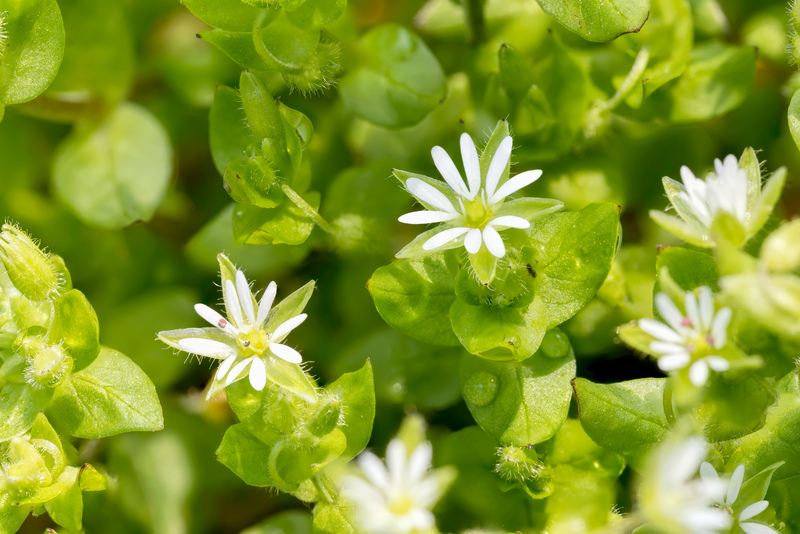Elevate Your Gardening Skill with These 9 Tips for Beginners
Posted on 24/06/2025
Are you eager to transform your yard into a lush haven or create a vibrant windowsill garden? Whether you dream of fragrant blooms or a bountiful vegetable patch, improving your gardening skills as a beginner is possible with the right guidance. This article will walk you through the top nine gardening tips for beginners, helping you avoid common pitfalls and foster a thriving garden you'll be proud of.
Why Improving Your Gardening Skills Matters
Gardening is more than just a hobby; it is a rewarding way to connect with nature, promote sustainability, and even elevate your mental well-being. With so many different types of gardens--from container to vertical and organic plots--beginners can feel overwhelmed by the options and challenges. That's why understanding the basics and following expert tips can make a significant difference in your gardening journey.
9 Effective Tips to Elevate Your Gardening Skill as a Beginner
Ready to grow your knowledge, your confidence, and your plants? Here are the essential gardening tips designed specifically for newcomers:
1. Choose the Right Garden Spot
- Observe sunlight: Most edible and flowering plants need at least 6 hours of sunlight per day. Monitor different spots for light exposure before selecting your garden site.
- Avoid wind and deep shade: High winds and heavy shade can stress young plants. Seek out an area that offers some natural protection.
- Accessibility: The closer and more visible your garden, the more likely you are to tend it regularly.
Elevate your gardening skills by planning your layout and making sure your plants get optimal conditions right from the start.
2. Understand Your Soil
- Test your soil: Use an inexpensive soil test kit to determine pH, nutrient levels, and clay or sand content.
- Amend as needed: Most gardens benefit from added compost or organic matter, which improves fertility and drainage.
- Mulch: Applying mulch not only conserves moisture but also regulates temperature and reduces weeds.
Beginner gardeners often underestimate the importance of soil health. Elevate your game by giving your plants the foundation they need for strong growth.
3. Start with Easy Plants
- Pick resilient varieties: Some plants are more forgiving for beginners such as sunflowers, marigolds, and zinnias in the flower garden; or lettuce, radishes, and herbs in the veggie patch.
- Read seed packets: They include invaluable information on spacing, sun, water, and recommended planting times.
Avoid frustration by getting to know easy-care options that build your confidence as your gardening skills improve.
4. Learn the Art of Watering
- Consistency is key: Most plants prefer a deep, less frequent soak over daily sprinkles. This promotes deep roots.
- Time it right: Water early in the morning or late afternoon to reduce evaporation and protect leaves from burn.
- Check soil moisture: Stick a finger into the soil; if it's dry 1-2 inches down, it's time to water.
Overwatering is a common beginner mistake. By mastering when and how to water, you'll significantly elevate your garden's health.
5. Feed Your Plants Wisely
- Organic vs. synthetic: Choose your fertilizer based on plant needs, but err on the side of organic when possible for enriching soil life.
- Don't overfeed: Too much fertilizer can burn roots. Follow package instructions and remember, less can be more.
- Compost: Homemade compost is gold for garden beds--full of nutrients and natural microorganisms.
Fertilizing correctly is crucial for developing your gardening skills and ensuring your plants thrive all season long.
6. Keep an Eye on Pests and Diseases
- Inspect regularly: Examine plants for holes, spots, wilting, or unusual changes.
- Encourage beneficial insects: Ladybugs, lacewings, and bees support natural pest control and pollination.
- Use organic solutions: When needed, use soap sprays or neem oil instead of harsh chemicals.
Vigilance and preventive care will keep your garden healthy, helping you nurture your gardening skills over time.
7. Learn Proper Pruning Techniques
- Pinch and prune: Removing dead, diseased, or leggy growth improves plant vigor and shape.
- Understand timing: Some plants fare better with pruning in early spring, others after blooming.
- Use the right tools: Clean, sharp pruners prevent damage and reduce disease spread.
Pruning can seem intimidating, but a little effort goes a long way toward healthier, more beautiful plants, making it a vital element in elevating your garden skills.
8. Keep Learning and Experimenting
- Read and watch: There are countless blogs, books, and YouTube channels for beginner gardeners.
- Take notes: A garden journal helps track what you've planted, what worked, and lessons learned each season.
- Experiment: Try different layouts, plant combinations, or new varieties to discover what thrives in your space.
Continuous learning is the hallmark of a successful gardener. Every mistake is an opportunity to improve your gardening skills and knowledge.
9. Enjoy the Process
- Be patient: Don't expect perfection. Gardens evolve and grow over time--so will your skills.
- Reconnect with nature: Gardening offers profound benefits for mind and body. Celebrate small victories and savor quiet moments among your plants.
- Share your bounty: Whether it's cut flowers or extra vegetables, sharing with friends and neighbors makes gardening even sweeter.
Remember, the most important gardening tip is to enjoy the journey. Each season brings new lessons and opportunities to enhance your gardening skill set.

Common Gardening Mistakes Beginners Should Avoid
- Overcrowding: Give plants space to grow as crowded gardens encourage disease and poor growth.
- Ignoring the weather: Planting too early or too late in the season can limit success, especially with vegetables.
- Neglecting tools: Keep your gardening tools clean and sharp to make tasks easier and safer.
- Planting without a plan: Taking the time to map out beds and consider sunlight, height, and color can make your garden visually appealing and efficient.
Learning to sidestep these pitfalls further boosts your gardening abilities and lays the groundwork for a healthy garden year after year.
How to Track Your Progress and Growth
One of the most rewarding aspects of gardening is seeing your progress over time. To make the most of your journey, consider the following simple tips:
- Maintain a garden journal to record planting dates, varieties, and weather notes.
- Take photos at regular intervals. Visual records can be incredibly motivating and informative.
- Join a gardening group--whether in your neighborhood or online--to exchange experiences and advice.
Tracking your gardening evolution helps solidify your knowledge, making it easier to replicate success and avoid repeating mistakes.

Frequently Asked Questions for Gardening Beginners
What are the easiest vegetables to start with?
- Lettuce and other leafy greens
- Radishes
- Green beans
- Herbs like basil, mint, and chives
How much time does gardening require each week?
While it depends on the size of your garden, most beginners can see great results with as little as 20-30 minutes per day. Consistency is more important than intensity!
How do I know when to harvest?
Each crop and plant has specific signs of readiness--monitor size, color, and firmness, and consult seed packets or plant tags for guidelines.
Can I garden if I only have a small space?
Absolutely! Container gardening and vertical gardens are perfect for balconies or patios. Choose compact, high-yield plants to make the most of your space.
Conclusion: Start Growing Today and Elevate Your Gardening Expertise
Gardening is a journey filled with growth--and not just for your plants. By following these nine essential beginner gardening tips, you'll equip yourself with knowledge, confidence, and the joy of nurturing life. Every season brings new possibilities, and as you apply these strategies, you'll elevate your skills from beginner to seasoned gardener in no time.
Ready to dig in? Roll up your sleeves, start experimenting, and watch your garden (and skills) flourish! For ongoing tips and support, join gardening clubs, read quality blogs, and never stop learning. Happy gardening!
Latest Posts
Privacy Upgrade: Explore 9 Fast-Growing Hedge Options
Discovering Joy in a Kid-Friendly Garden Design
Winter Fortress: Ensuring Garden Plant Health



